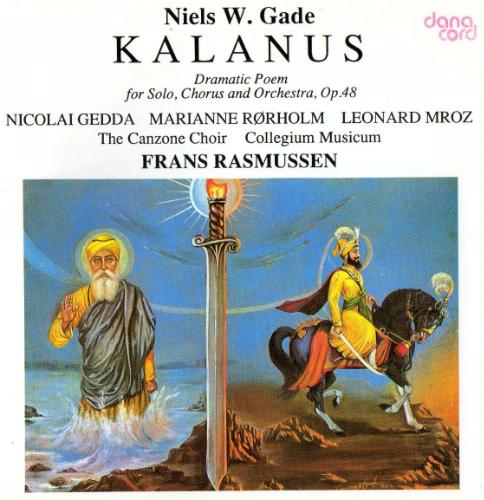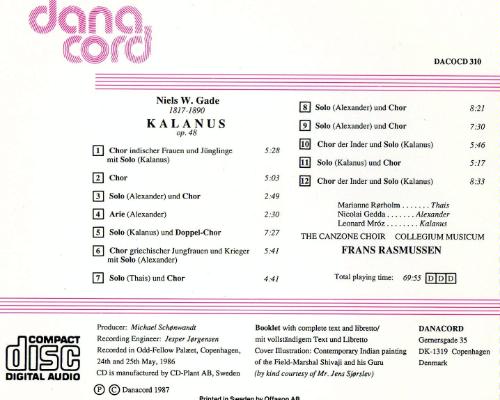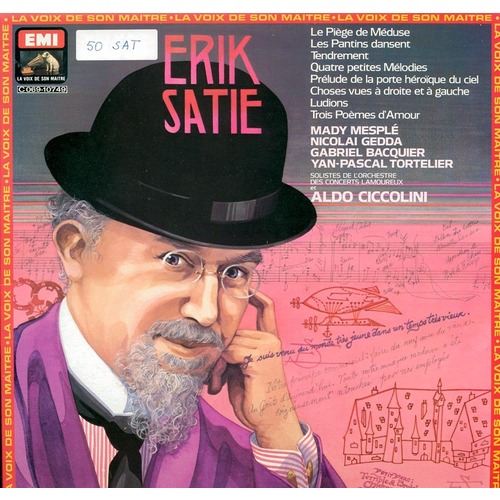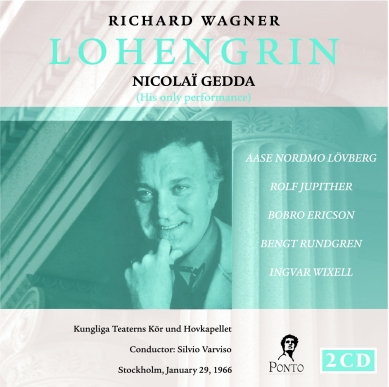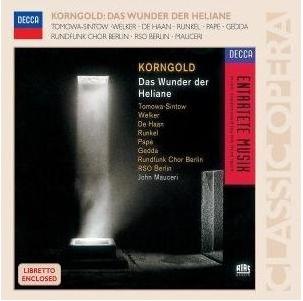93) Albert Roussel Padmavati
Topic: 093) Padmavati 1983
Synopsis
Chitoor, a city in 13th Century India, is ruled by the noble and just Prince Ratan-Sen, who is married to the beautiful Padmavati.
Disaster looms on the horizon of their peaceful life, however, because the Mogul ruler of Delhi, Alauddin, is approaching Chitoor with an army.
Act I
The opera opens with Alauddin and his envoys coming to Ratan-Sen's court to discuss peace or war. After dances of welcome by the Hindu palace dancers, Alauddin asks to see Padmavati, of whose beauty he has heard. When Ratan-Sen bids his wife to lower her veil, Alauddin seems overcome by her beauty and makes an excuse to leave.
Then Alauddin sends an ultimatum to Ratan-Sen: hand over the beautiful Padmavati, or the city of Chitoor will be sacked. Ratan-Sen refuses. The people of Chitoor lynch Alauddin's cruel messenger, who dies prophesying death for Ratan-Sen and Padmavati and the destruction of Chitoor.
In the final scene of the act, with calls to arms echoing in the distance, Padmavati sings a lament that she should, innocently, be the cause of disaster and prays that she die rather than be separated from Ratan-Sen.
Act II
In the Temple of the god Shiva, Padmavati awaits the return of her husband, who is leading his troops in a desperate sortie against the Moguls. The priests of Shiva tell her that a supreme sacrifice at dawn is necessary to save Chitoor, and that there must be more than one victim.
Ratan-Sen returns, wounded. His army has been routed; a truce is in place until dawn, the deadline to hand over Padmavati. He pictures the horrors that will befall the people of Chitoor. And then Padmavati stabs her beloved husband - the first sacrificial victim - knowing that tradition dictates she commit suttee, or suicide on her husband's funeral pyre. The preparations for her sacrificial death are a solemn ritual that Padmavati handles with dignity and honor. As she is carried, with a final song of terror, to her immolation, Alauddin bursts through the Temple door - too late.
Padmâvâtî, epouse de Ratan-Sen - Marilyn Horne, contralto
Ratan-Sen, roi de Tchitor - Nicolai Gedda, ténor
Alouddin, sultan des Mongols - José Van Dam, bayton
Nakamti, jeune fille de Tchitor - Jane Berbié, mezzo-soprano
Le Brahmane, attaché à Alaouddin - Charles Burles, ténor
Gora, intendant du Palais - Marc Vento, baryton
Badal, envoyé de Ratan-Sen - Laurence Dale, ténor
Le veilleur - Thierry Dran, ténor
Un prêtre - Jean-Jacques Cubaynes, basse
Première femme du Palais - Martine Mahé, mezzo-soprano
Deuxième femme du Palais - Elena Perez, contralto
Un guerrier - Henri Amiel, baryton
Un marchand - Hugues Brambilla, ténor
Un artisan - Gérars Blatt, baryton
Femmes du peuple - Isabel Alvarez, soprano
- Marian Etxeberria, soprano
- Hermina Laborde, soprano
Orfèon Donostiarra
Chef des choeurs: Antxon Ayestarán
Orchestre du Capitole de Toulouse
MICHEL PLASSON
Recorded in the Halle-aux-Grains de Toulouse from 17 till 19 November 1982 and from 1 till 3 Jule 1983
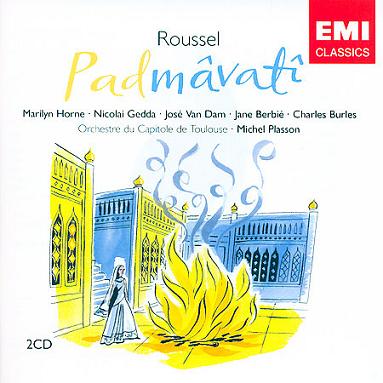
LINK: DOWNLOAD
